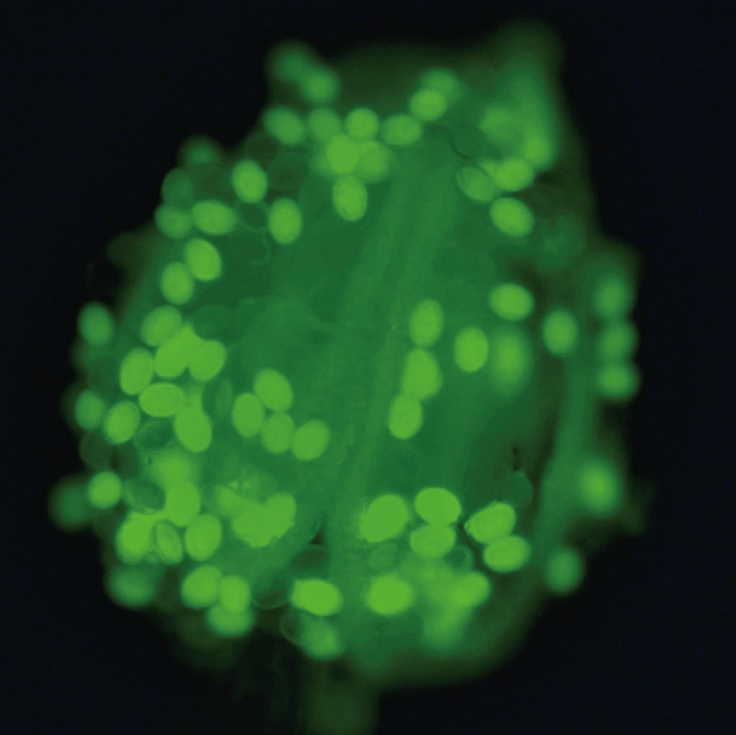Discovery of a Key Lipid Signal Mechanism for Pollen Fertilization
Artik Elisa Angkawijaya, Van C Nguyen, Farrel Gunawan and Yuki Nakamura
Pollen development and tube growth are crucial for successful plant fertilization and propagation, with various agricultural problems stemming from pollen infertility. Previous studies pointed out that phosphatidate (PA) plays an important role in sending signals during pollen tube growth; however, its production and impacts remained unknown. The research team identified a pair of kinases (DGK2 and DGK4) in pollen of Arabidopsis thaliana. They experimentally proved that removing these kinases reduces PA and deforms pollen tube growth, thus making plants infertile. Also, when the team injected PA and relevant genes back into defective plants to allow DGK kinases to function, the pollen tubes grew back to normal. Therefore, they concluded that the PA signal produced by DGK2 and DGK4 is essential for pollen tube growth and plant fertility. They deduced that the PA mechanism is likely to exist in various other plant species; this finding may help improve fertility in crops.
The Plant Cell 32, 2602-2620 (2020).
DOI: 10.1105/tpc.20.00251